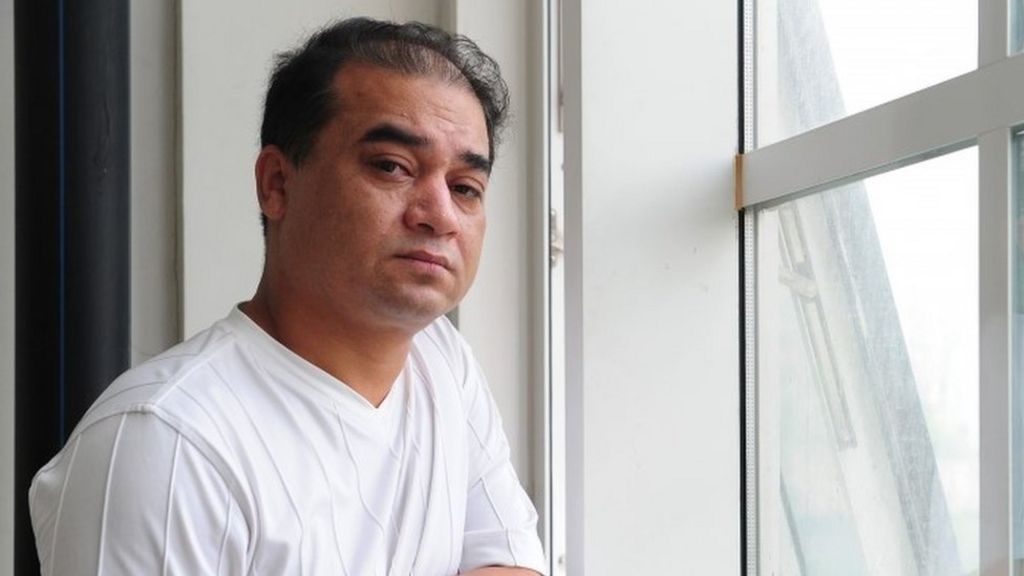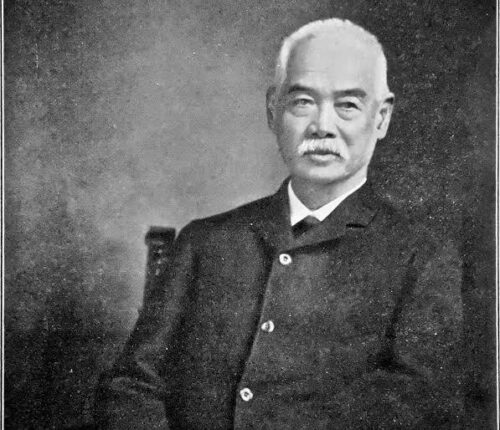This Week in China’s History: September 25, 2014
Certainly, some time needs to pass before we can analyze events historically, but the key question — at least for this column — is not how long ago something happened, but how we approach it. Events that took place quite recently can offer insights on today’s world, if we evaluate them critically and consider them not only in how the world came to be as it is, but how it might have gone differently, and the reasons things developed as they did. With this in mind, This Week in China’s History focuses on the 21st century for the first time.
On September 25, 2014, the People’s Intermediate Court in Urumqi issued a sentence of life imprisonment on charges of separatism. The defendant rose to his feet on hearing the sentence, declaring “It’s not just!” The sentence was nonetheless confirmed a few days later, and Ilham Tohti, an economics professor at Central Minzu University in Beijing, was imprisoned, thousands of miles away from his family in the capital. According to his daughter, who has been in the United States since 2013, his family has had no news of him in three years.
Prison was not new. Ilham had been incarcerated since January 2014, but that was just the latest detention. He had been a focus of attention since 1999, subject to occasional house arrests and questioning, and was first formally arrested in 2009. What brought this economist to the attention of government authorities?
Like most people in Xinjiang, Ilham Tohti is Uyghur, ethnically, linguistically, and religiously distinct from most of China’s population. He was born in Artush, in far western Xinjiang, in 1969, but left to attend university in Changchun, and then went on to Beijing for advanced studies at Minzu University in 1985. He eventually joined the faculty there and became one of China’s leading experts on the economic and social conditions in Xinjiang, particularly among Uighurs there.
Understanding the charges against Ilham Tohti requires some backstory. This is just the barest of sketches; for a thorough history of the region, try James Millward’s Eurasian Crossroads or Justin M Jacobs’s 2020 Xinjiang and the Modern Chinese State, and of course Darren Byler’s ongoing Xinjiang column on this site.
The first inhabitants of Xinjiang came from the West, not the East, but the region’s connection with the Chinese world has deep roots too. The Han Dynasty made forays into what is now called Xinjiang around 2,000 years ago, directly administering some places and ruling through surrogates in others. The Tang Dynasty — itself a mix of Han Chinese and central Asian influences, even though it is considered a Chinese dynasty — established a similar structure in the 7th and 8th centuries. Throughout this time, this enormous area — roughly the size of Alaska, or more than two Texases — was not unified or centralized, but was rather a network of cities and oases that were part of the Silk Roads connecting China with India and Western Asia. Importantly, the inhabitants were not linguistically or ethnically Chinese.
Control, such as it was, over the region shifted again late in the 8th century, when a Tibetan empire defeated the ebbing Tang. Even more important during this time, though, was the arrival of Islam, which supplanted Buddhism in the area after the withdrawal of Tang influence following the Battle of Talas River and the An Lushan Rebellion. By the time of the Mongol expansion that eventually overtook all of Asia in the 1200s, the area was mostly Muslim.
Xinjiang’s modern relationship to China began with its integration into the Qing state in the 18th century, which gave the area the name Xinjiang, literally meaning “New Frontier.” This is sometimes presented as proving that Xinjiang has been part of China since the 1700s, but this is misleading for two reasons. First, the Qing conquest was fragile, so much so that it had to be “reconquered” a century later. Second, and more important, the Qing rulers were not Chinese but Manchu. Decades of scholarship has demonstrated the significance of a multiethnic, multilinguistic Qing empire of which China was but one part, and that included Tibet, Mongolia, Manchuria, and, lately, Xinjiang. China and Xinjiang may have been part of the same empire, but that is not to say that Xinjiang was part of China. However, when the Republic of China claimed, in 1912, the same boundaries as its predecessor, the Qing, the idea of continuous Chinese control over Xinjiang — specious as it was — became conventional. The People’s Republic again claimed those same borders after 1949.
And here’s the connection to Ilham Tohti: he was convicted and sentenced for promoting separatism. This idea that Xinjiang is an essential part of China had become a foundation of the PRC, and suggesting otherwise was labeled treasonous. Despite Xinjiang’s formal status as an “autonomous region,” official policies worked to assimilate Uyghur culture into the Han Chinese mainstream. This has included policies to promote Chinese language at the expense of Uyghur language (Ilham has been an outspoken critic of so-called bilingual education, after initially supporting it, for inadequately teaching either language well). Another policy has been promoting Han Chinese migration into the region: the Han population of Xinjiang has grown from about 5% in 1949, when the PRC was founded, to more than 40% in 2020.
These twin aims of cultural assimilation and settler colonialism made Ilham Tohti’s work, focused on opening lines of communications between Han Chinese and Uyhgurs, controversial. Ilham wrote that it became impossible for him to publish after 1999 because of government censorship and control. The PRC government declared several Uyghur organizations as terrorist groups, but was unable to gain much international support for this position until after 2001, when the United States, in the wake of 9/11, changed its policy and agreed to the designation in order to enlist the support of the PRC in the “war on terror.” Ilham’s Chinese-language website, Uyghurbiz.cn, launched in 2006 to promote dialogue between Han and Uyghurs, was shut down in 2008 for alleged ties to extremist Uyghurs abroad.
Chinese authorities first arrested Ilham in 2009, following violence in Urumqi that left some 200 people dead, mostly Han Chinese migrants to the region. Officials interrogated Ilham about suspected ties to extremists, but he was released after several weeks and international pressure.
His most recent internment began in January 2014. Despite writings that show him to be moderate on questions of Uyghur autonomy — he has consistently advocated “regional ethnic autonomy” and opposed independence — Ilham was charged with supporting not only Uyghur separatism, but violence to promote this cause. The unprecedentedly harsh life sentence, it appears, aimed to set an example.
In the years since Ilham’s arrest and conviction, the international community has praised his work to promote good relations between Uyghurs and Han, and condemned his imprisonment. In the fall of 2019, he was recognized with two major international honors: the European Parliament’s Sakharov Prize for Freedom of Thought and the Council of Europe’s Vaclav Havel Prize for Human Rights.
I try to close these columns by finding a connection between the past and present, and in this case the tie is clear. In the last decade, Xí Jìnpíng’s 习近平 government has increased repression in Xinjiang, with a million or more Uyghurs passing through internment camps and an unprecedented level of surveillance, and authoritarian measures like thought reform, religious suppression, and reeducation. In just the last few weeks, Disney’s live-action remake of Mulan has been roiled in controversy, not least because it was partly filmed in Xinjiang and thanks the Turpan Public Security Bureau — a key player in the creation of concentration camps. The repression has even moved beyond Xinjiang, targeting Muslims and Islamic culture in neighboring regions.
The arrest and sentencing of Ilham Tohti was part of an ongoing pattern by which the Chinese government has been working to suppress, if not eradicate, Uyghur culture and tighten control over the PRC’s outer reaches. We see these policies echoed not only in Xinjiang and against Muslims, but in Tibet and Hong Kong as well, a vivid reminder that the nation-state depends on a centralized historical narrative for its legitimacy. When that narrative is threatened, instruments of state power are brought to bear against the threat.
This Week in China’s History is a weekly column.






